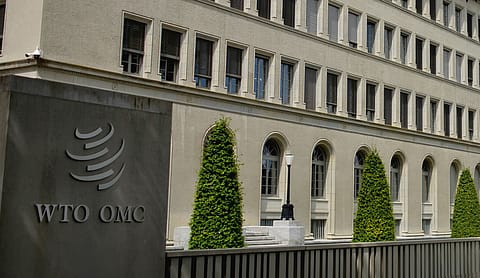Developed countries attempt to limit scope of TRIPS waiver
The US, Canada, the UK and EU also seek to limit the scope for export curbs, seeking permanent disciplines on trade facilitation measures, and increased market access.

Though most World Trade Organisation (WTO) members are hurrying to chalk out an agreement to waive off existing provisions under the TRIPS proposal, a group of developed economies are attempting to water it down, sources say.
The WTO’s TRIPS (trade related aspects of intellectual property rights) agreement aims to facilitate easy access to pandemic-related medicines and technologies.
The WTO’s 12th Ministerial Conference (MC12) is scheduled to take place on 12-15 June in Geneva. The 164-member trade body that represents 98% of global trade has kept the WTO response to the pandemic as one of the priority items before MC12. the TRIPS waiver is an important component of this pandemic response as it could serve as a template for universal access to healthcare and treatment in case of future pandemics too.
Sources aware of the negotiations in the run up to MC21 say countries like the US, Canada, the UK and the European Union are seeking to incorporate elements that pertain to limiting the scope for export restrictions, seeking permanent disciplines with respect to trade facilitation measures, increased market access and limit the scope of the TRIPS waiver.
India is known to have expressed its reservations against the addition of permanent disciplines in the WTO agreements to respond to the pandemic. India is also not in the favour of linking the challenges of the pandemic to areas like market access, export restrictions, etc. It is learnt that India’s attempt will be to see that the WTO’s pandemic response is directly addressing the global supply side constraints with respect to treatments, medicines, diagnostics, etc., in the eventuality of a pandemic.
Informed sources say several countries including South Africa, the African and Caribbean and Pacific States, Sri Lanka, Egypt, etc., want the WTO response to address issues with respect to such supply-side constraints.
The developing countries are also seeking increased access for services, flexibilities with respect to export-control measures, food security measures and limiting the scope for any additional disciplines.
Recommended Stories
The primary focus of the WTO’s response from the developing country perspective is that it should address the challenges posed by the current pandemic, including intellectual property challenges and smooth technology transfers in augmenting the supply production.